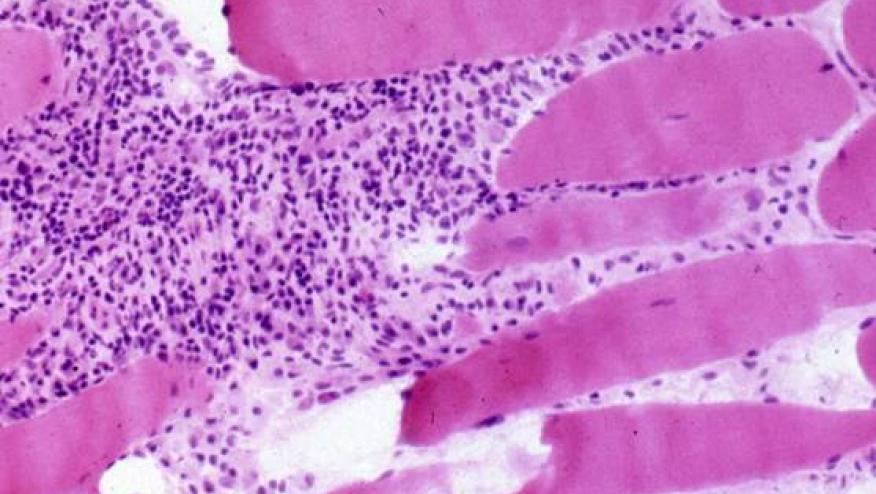Checkpoint Inhibitors: Who Gets Myocarditis? Save

The usual risk factors for myocarditis may not apply to who gets it while on immune checkpoint inhibiting cancer drugs, an FDA adverse event database suggested.
Myocarditis associated with immune checkpoint inhibitors (ICIs) was nearly twice as likely in women (OR 1.92, 95% CI 1.24-2.97) and dramatically more likely in those 75 years or older (OR 7.61, 95% CI 4.29-13.50), Yoshito Zamami, PhD, of Tokushima University Graduate School of Biomedical Sciences in Tokushima, Japan, and colleagues found.
Outside of the interaction with these cancer drugs, though, myocarditis was no more common in women or elderly individuals, the group reported in a research letter in JAMA Oncology.
Combining ICIs ipilimumab (Yervoy) and nivolumab (Opdivo) was also independently associated with an increased risk of myocarditis (OR 1.93, 95% CI 1.19-3.12).
"Our findings suggest that careful monitoring of ICI-related myocarditis is warranted for populations regarded as low-risk for general myocarditis, such as female patients and patients 75 years or older," they concluded.
Douglas Johnson, MD, of Vanderbilt University Medical Center in Nashville, Tennessee, speculated that the predominance in women taking ICIs could be related to the fact that many types of autoimmune diseases are more common in women.
"This may give additional insights into the biological basis of this toxicity, and suggest more stringent monitoring of troponin levels in patients on combination therapy," he commented to MedPage Today. "At this point, though, it is too early to change management for patients based on age or gender."
While not surprising that there might be cumulative toxicity with multiple agents, commented Manali Kamdar, MD, of the University of Colorado Cancer Center in Aurora, the study "certainly makes the treating physician pause, review symptoms more cautiously, and be proactive about investigating cardiac symptoms in patients on checkpoint inhibitors."
In the analysis of FDA Adverse Event Reporting System database from July 2014 to June 2018, there were 13,096 cases of myocarditis in patients who received ICIs among the 1,979,157 spontaneously filed reports.
Myocarditis risk was significantly associated with ICI use (OR 9.66, 95%CI 7.16-13.05).
The researchers cautioned that self-reporting of the adverse events may have led to reporting bias and inaccurate reports and that there was limited data on prior diseases, cancer type, and treatment history.
The study couldn't compare adverse event rates between the agents. Also, the study couldn't rule out imbalance in risk factors, such as autoimmune disease, as the reason for the ICI-myocarditis interactions in female patients and those 75 years or older.
"In addition, the sex differences on [immune-related adverse event] outcomes remain controversial, and therefore further specific studies of this association are needed," the researchers noted.
The researchers disclosed no relevant relationships with industry








If you are a health practitioner, you may Login/Register to comment.
Due to the nature of these comment forums, only health practitioners are allowed to comment at this time.